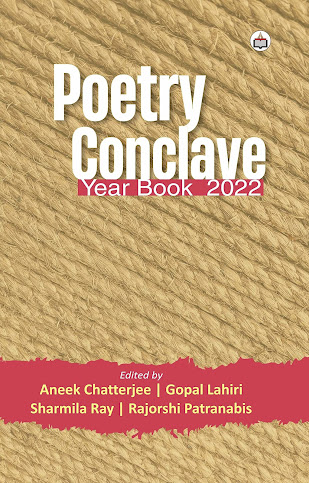Namrata reviews The Poetry Conclave Year Book 2022 edited by Sharmila Roy, Aneek Chatterjee, Gopal Lahiri, and Rajorshi Patranabis (Published by Authors Press, 2022) calling it a carefully strung priceless necklace.
Poetry Conclave Year Book 2022 is a poetry collection consisting of works of 64 poets (from India and abroad) across themes and moods. Poetry Conclave was formed with the motive of providing a platform for writing and reading English poetry. The love for poetry further metamorphosized into poetry collections.
“One of poetry’s most appealing elements can be the mixture of observations and ideas. Here the poet reaches out to the world and poetry. Poet’s heart is attuned to the changing patterns of the society and its surroundings, its landscapes and seasons, its sorrow and malice, its dream and hope.”
(From Editors’ Note, pg 5)
As the editors’ note mentions, the poems in this collection are diverse and span myriad moods and emotions. This ensures reading this book is a roller coaster ride. One doesn’t know what emotion the next verse will evoke and therein lies the thrill of expecting the unexpected.
Read the full review on Kitaab.
